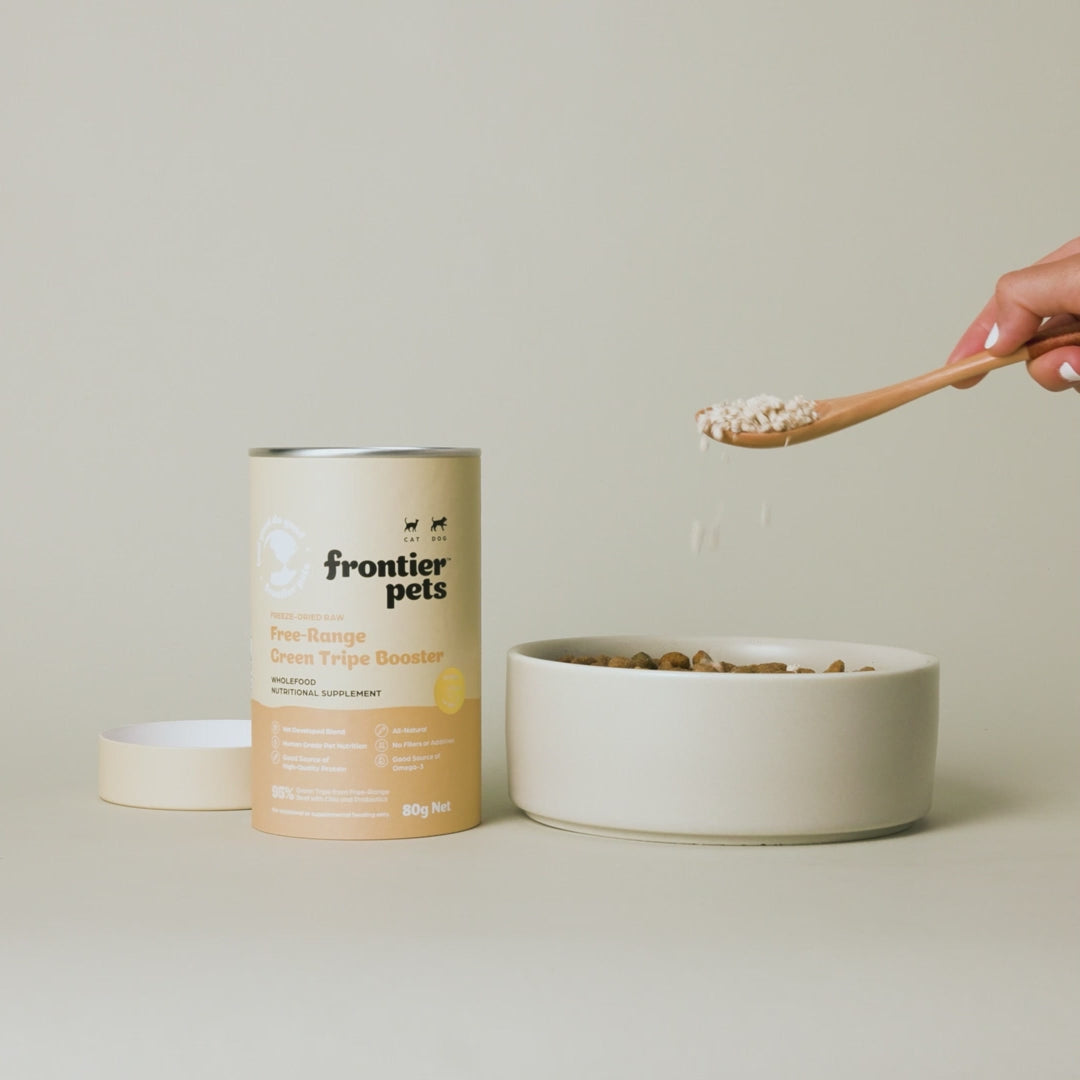Best Tips to Prevent or Manage Diabetes in Dogs
Summary
Diabetes in dogs is caused by insufficient insulin or the body's inability to use it effectively. A low-carb, high-protein diet and regular exercise can help manage the condition. Frontier Pets’ freeze-dried raw food is a suitable option for diabetic dogs. Consulting a vet is essential for proper care.
Best Tips to Prevent or Manage Diabetes in Dogs
Just like humans, dogs require a healthy and balanced diet to maintain a balanced weight, overall health, and wellbeing. Without the right nutrition, they may be at risk for health issues like diabetes.
In this article, we’ll break down a complete guide to diabetes in dogs, covering prevention, symptom identification, and management strategies to optimize your diabetic pet’s health and wellbeing. Read on for our best tips for avoiding and managing diabetes in your furry friend.
Understanding Diabetes in Dogs
Diabetes is a metabolic disease that causes high blood sugar. The hormone insulin moves sugar from the blood into your cells to be stored or used for energy. With diabetes, the body either doesn’t make enough insulin or can’t effectively use the insulin it does make, leading to excess blood sugar. This imbalance can lead to symptoms such as excessive thirst, excessive urination, and weight loss in advanced cases. A common cause of diabetes in dogs is an excess of simple sugars (simple carbohydrates) in the diet.
Is My Dog Diabetic?
Similar to diabetes in humans, diabetic dogs struggle to produce sufficient insulin or effectively use the insulin available. Insulin is essential for converting sugar into energy, which is vital for overall health. If you suspect your dog may have diabetes, schedule a vet examination as soon as possible.
Symptoms of Diabetes in Dogs
While self-diagnosis isn’t advisable, monitoring your dog’s overall health can help you provide your vet with valuable insights. Common symptoms of diabetes in dogs include:
- Excessive thirst and urination: While thirst is natural on hot days or after exercise, persistent excessive drinking or urination may indicate diabetes.
- Dramatic weight loss: If your dog is losing weight despite a stable diet, diabetes may be a cause.
- Decreased appetite: A sudden lack of interest in food can also signal diabetes.
- Cloudy eyes: Clear eyes indicate a healthy dog, so cloudiness may suggest diabetes or other eye issues.
If your dog exhibits these symptoms, consult your vet to determine the best course of action.
Causes of Diabetes in Dogs
Preventing diabetes through a good diet and regular exercise is crucial. Here are our top tips:
- Diet high in carbohydrates (grains): Dogs are omnivores, needing a variety of foods, primarily meat with some fruits, veggies, and eggs. Grain-based foods contain carbohydrates and simple sugars that are harder for dogs to digest. Raw food is best, as it aligns with their natural diet.
- Lack of regular, consistent exercise: All dogs need regular exercise for health and to prevent overeating from boredom.
Managing Your Dog’s Diabetes
Managing canine diabetes involves lifestyle adjustments, particularly around diet and exercise, along with regular vet guidance.
- Exercise Timing: For diabetic dogs, walk them a few hours after meals to prevent hypoglycemia (a rapid drop in blood pressure).
- Slow-Release Diet: A diet that provides slow-release energy supports regular exercise. Avoid walks during hot hours or activities that may be too strenuous.
Can Glucosamine Cause Diabetes in Dogs?
If you’re wondering about glucosamine for joint support, rest assured—it’s a sugar that doesn’t impact blood sugar levels or insulin sensitivity, unlike glucose.
Finding the Best Diabetic Dog Food
If your dog or cat has been diagnosed with diabetes, it is important to follow your veterinarian’s advice regarding what food to feed them. It is essential to consult your vet if you're considering a diet change for your diabetic dog or cat, as an adjustment in insulin dosage may be required if the diet is changed. Regular mealtimes and portion sizes are essential too. If your vet has recommended a low-carbohydrate diet, Frontier Pets could be an appropriate option to discuss with them. Frontier Pets food is a low-carbohydrate diet with high nutritional value, featuring high protein and fat content for sustained, slow glucose release—ideal for diabetic pets.
While no single solution can instantly resolve health concerns, feeding a raw diet like Frontier Pets' raw dog food can improve overall health and aid in blood sugar management. Our natural dog treats are also a great tool to reward good behaviors in diabetic dogs when used occasionally.
Providing a balanced raw food diet, consistent feeding times, and regular exercise can help keep your pup happy and healthy, regardless of health conditions.
For more information on this and other health topics affecting your pet, contact our customer care team and we can refer you to one of our holistic vets for consultation.
Frequently Asked Questions (FAQs)
More Blog posts

Best Low Maintenance Dog Breeds in Australia
Choosing your new fluffy companion is never easy. There is a wide range of considerations that go into finding the perfect pup for you! From your lifestyle to your living arrangements, it’s importa...
Read more
Steps With Pets Charity Challenge, August-September 2025
Steps with Pets – Tottenham Hotspur’s global charity dog-walking challenge, supported by Frontier Pets Calling all dog-loving Spurs fans around the world! This is your chance to combine your pass...
Read more












